Seeds sprouting across Europe
- Wednesday, November 27 2013 @ 05:40 pm ACDT
- Contributed by: Wesley Hull
- Views: 3,789

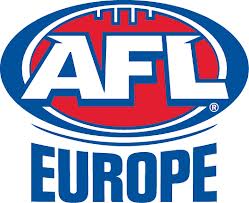 A quick look at the list of clubs receiving start up grants from AFL Europe is a reasonable indicator of the slow but steady growth of Australian Rules football across the continent. Some might argue that the true growth is only seen in the number of players listed with clubs. Others might argue that not all of these clubs will see the distance. But one thing that is true is that the line-up of people seeking grants on behalf of fledgling clubs continues.
A quick look at the list of clubs receiving start up grants from AFL Europe is a reasonable indicator of the slow but steady growth of Australian Rules football across the continent. Some might argue that the true growth is only seen in the number of players listed with clubs. Others might argue that not all of these clubs will see the distance. But one thing that is true is that the line-up of people seeking grants on behalf of fledgling clubs continues.For some the journey is just beginning. Some are well into their journey, whilst others are little more than a name on an application. But a projection looking forward might see a landscape with more teams, more players and more opportunities than ever before if all goes well.
World Footy News first reported the possibility of a new club in Portugal in our article about the recent Algarve 9’s tournament played in Vilamoura, north of Lisbon (see AFL Europe Algarve 9’s, Portugal – Lisbon Dockers' time to shine). This group, in Averio, has received a grant from the AFL Europe Start-Up Club Program to kickstart a new club. In Hungary, another group in Budapest has applied for and received a grant. According to Ben MacCormack, the General Manager of AFL Europe, “We have supplied start-up grants to two groups in Budapest and Averio, Portugal however they aren't at new club stage yet.” We will monitor the progress of these parties in the new year and report any further growth.
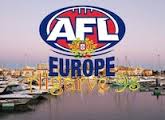
There has been much movement on this front in Denmark. The Copenhagen X-Men also received a grant and have recently finished their first full season in the DAFL. Whilst they only managed one victory, fittingly against the North Copenhagen Barracudas, their presence has expanded the playing options in Denmark and contributed to the future growth of the game there. Additionally, as we reported earlier this year, the Odense Lions returned as a determined force. Whilst they did not play in the DAFL Premier League this year, their goal is to be there in 2014 and beyond (see Anatomy of a new club – Denmark’s Odense Lions).
Another Nordic country, Finland, has seen an increased level of interest in Australian Rules football, resulting in grants being approved for both the Tampere Bobcats and the Lappeenranta Wildmen (see Finland Footy – Cometh The Wildmen). Whilst both groups are making the transition to clubs by recruiting and developing localised programs for a future playing in the FAFL, the mere fact that multiple clubs are developing in Finland speaks a great deal about growth of the game in the country.
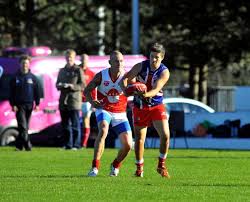
Similarly, a grant was approved for the development of another Icelandic team, with the Drekarnir Dragons listed as the name of the new team in the north of Iceland in the town of Akureyri (see Footy Beneath the Arctic Circle – Akureyri, Iceland). As stated by AFL Iceland General Manager Solvi Fannar Sigmarsson, “I contacted AFL Europe and applied for the [grant] because we're starting the club up here in Akureyri. They sent us two leather balls and four plastic ones. It was a great help. Our main focus continues to be on recruitment and growing the sport here.”
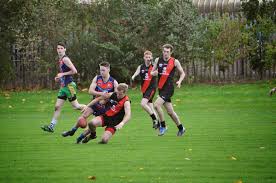
In Scotland, the Kingdom Kangaroos have undergone a transformation from the Central Magpies to be a new force in years to come representing central Scotland and Fife. They are due to join the SARFL in 2014 (see The Mob Goes Wild – Kingdom Kangaroos).
Over in Ireland the UCC Bombers in Cork also received a grant which has seen them develop into a side capable of joining the ARFLI competition sooner rather than later. College or university based teams are also growing across Ireland with UCC, the NRC Eagles in Magherafelt, Northern Ireland and a team from the Dublin City University.
Even aside from the issuing of grants by AFL Europe, the growth can be seen across Europe. In Germany the Dresden Wolves will join the CAAFL (Czech league) based in Prague. There is also movement across Germany with teams forming or developing in Boblingen (Pirates), Ludwigsburg (Taipans) and Haslach (Hawks) (see Local footy in Baden-Württemberg - Ludwigsburg Taipans hoping for opponents).
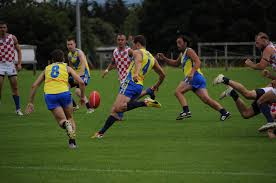
Russian teams are in their infancy in Yaroslavl and Novokuznetsk, and France has already seen the addition to the CNFA of the ALFA Lions, with the possibility of future teams from Pau, St Nazaire and Toulon having been discussed in the past year. Even in Austria the Styrian DownUnderDogs have given birth to a litter of small nine per side clubs named the Murtal Mountain Goats, Gradec Earthmovers and Castle Rock Mammoths.
There are many unknowns here. Some teams will prosper, whilst others may fall away through lack of interest, funding or both. Some teams may progress to 18 a side and others may remain forever at nine per side. But whatever happens, many clubs are benefiting from the assistance of AFL Europe. At the same time other clubs are springing up with the assistance of local leagues and dedicated individuals.
This is the kind of epidemic I approve of.


 RSS news
RSS news Twitter
Twitter Facebook
Facebook